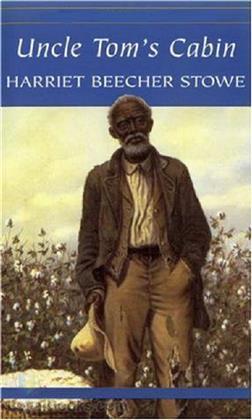on monday morning the two fugitives found themselves breakfasting at the golden pheasant in blandford. they were in the course of an elaborate doubling movement through dorsetshire towards ringwood, where jessie anticipated an answer from her schoolmistress friend. by this time they had been nearly sixty hours together, and you will understand that mr. hoopdriver's feelings had undergone a considerable intensification and development. at first jessie had been only an impressionist sketch upon his mind, something feminine, active, and dazzling, something emphatically "above " him, cast into his company by a kindly fate. his chief idea, at the outset, as you know, had been to live up to her level, by pretending to be more exceptional, more wealthy, better educated, and, above all, better born than he was. his knowledge of the feminine mind was almost entirely derived from the young ladies he had met in business, and in that class (as in military society and among gentlemen's servants) the good old tradition of a brutal social exclusiveness is still religiously preserved. he had an almost intolerable dread of her thinking him a i bounder.' later he began to perceive the distinction of her idiosyncracies. coupled with a magnificent want of experience was a splendid enthusiasm for abstract views of the most advanced description, and her strength of conviction completely carried hoopdriver away. she was going to live her own life, with emphasis, and mr. hoopdriver was profoundly stirred to similar resolves. so soon as he grasped the tenor of her views, he perceived that he himself had thought as much from his earliest years. "of course," he remarked, in a flash of sexual pride, "a man is freer than a woman. end in the colonies, y'know, there isn't half the conventionality you find in society in this country."
he made one or two essays in the display of unconventionality, and was quite unaware that he impressed her as a narrow-minded person. he suppressed the habits of years and made no proposal to go to church. he discussed church-going in a liberal spirit. "it's jest a habit," he said, "jest a custom. i don't see what good it does you at all, really." and he made a lot of excellent jokes at the chimney-pot hat, jokes he had read in the globe 'turnovers' on that subject. but he showed his gentle breeding by keeping his gloves on all through the sunday's ride, and ostentatiously throwing away more than half a cigarette when they passed a church whose congregation was gathering for afternoon service. he cautiously avoided literary topics, except by way of compliment, seeing that she was presently to be writing books.
it was on jessie's initiative that they attended service in the old-fashioned gallery of blandford church. jessie's conscience, i may perhaps tell you, was now suffering the severest twinges. she perceived clearly that things were not working out quite along the lines she had designed-. she had read her olive schreiner and george egerton, and so forth, with all the want of perfect comprehension of one who is still emotionally a girl. she knew the thing to do was to have a flat and to go to the british museum and write leading articles for the daily p,tpers until something better came along. if bechamel (detestable person) had kept his promises, instead of behaving with unspeakable horridness, all would have been well. now her only hope was that liberal-minded woman, miss mergle, who, a year ago, had sent her out, highly educated, into the world. miss mergle had told her at parting to live fearlessly and truly, and had further given her a volume of emerson's essays and motley's "dutch republic," to help her through the rapids of adolescence.
jessie's feelings for her stepmother's household at surbiton amounted to an active detestation. there are no graver or more solemn women in the world than these clever girls whose scholastic advancement has retarded their feminine coquetry. in spite of the advanced tone of 'thomas plantagenet's' antimarital novel, jessie had speedily seen through that amiable woman's amiable defences. the variety of pose necessitated by the corps of 'men' annoyed her to an altogether unreasonable degree. to return to this life of ridiculous unreality--unconditional capitulation to 'conventionality' was an exasperating prospect. yet what else was there to do? you will understand, therefore, that at times she was moody (and mr. hoopdriver respectfully silent and attentive) and at times inclined to eloquent denunciation of the existing order of things. she was a socialist, hoopdriver learnt, and he gave a vague intimation that he went further, intending, thereby, no less than the horrors of anarchism. he would have owned up to the destruction of the winter palace indeed, had he had the faintest idea where the winter palace was, and had his assurance amounted to certainty that the winter palace was destroyed. he agreed with her cordially that the position of women was intolerable, but checked himself on the' verge of the proposition that a girl ought not to expect a fellow to hand down boxes for her when he was getting the 'swap' from a customer. it was jessie's preoccupation with her own perplexities, no doubt, that delayed the unveiling of mr. hoopdriver all through saturday and sunday. once or twice, however, there were incidents that put him about terribly--even questions that savoured of suspicion.
on sunday night, for no conceivable reason, an unwonted wakefulness came upon him. unaccountably he realised he was a contemptible liar, all through the small hours of monday he reviewed the tale of his falsehoods, and when he tried to turn his mind from that, the financial problem suddenly rose upon him. he heard two o'clock strike, and three. it is odd how unhappy some of us are at times, when we are at our happiest.
